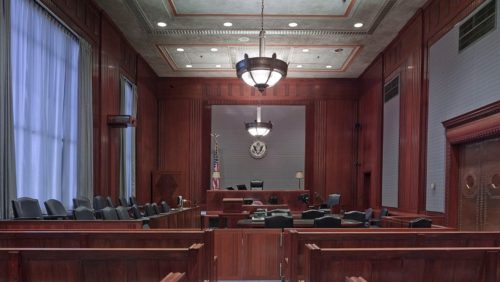2018 Year in Review – Law of War
March 28, 2019 by Editor

By: Memmi Rasmussen
In 2018, the Law of War saw some developments and emerging challenges. Developments include: novel forms of cyber warfare, an imperiled I.C.C., further degradation of Article 2(4) of the U.N. Charter, as well as the establishment of a team tasked with investigating war crimes committed by member of ISIS in Iraq.
Cyber Warfare
As mentioned in last year’s review, there has been an increasing fear of the threat new emergent forms of cyber warfare that focus on undermining institutional integrity. A report prepared for the U.S. Senate, and released on the 17th of December this year, highlighted the scale and scope of the Russian disinformation campaign around the 2016 presidential election. Commentators are wrestling with definitional questions such as, when do interferences rise to a level of coercion that would be contrary to international law, and under what circumstances a cyber-attack could trigger a right to forceful self-defense?
2018 U.S. War Powers Report Released
A transparency report outlining the legal and policy theories under which the United States uses military force and conducts related national security operations was released by the White House in March. The report is required by Section 1264 of the 2018 National Defense Authorization Act (NDAA) signed into law by the President in December 2017. As part of this major report, the Trump administration ought to have explained and justified any departures from Obama-era legal interpretations or use of force policies detailed in a prior iteration of this report in 2016. Of the most notable unanswered questions in this year’s report is that of the president’s authority to use force against North Korea. As this issue was not covered in the original December 2016 report, the Trump administration may take the view that it is outside the scope of the Section 1264 requirement, although this would seem to go against the purpose of Section 1264 in providing an understanding of the executive branch’s views regarding its legal authority to use military force.
The ICC
On September 10, National Security Advisor John Bolton gave a speech to the Federalist Society in which he made a frontal attack on the International Criminal Court, reiterating his stance that the International Criminal Court is “dead” to the United States and threatening individual retribution against personnel from “any company or state that assists an ICC investigation of Americans.” The speech also laid out a new policy direction which would see the United States attempt to negotiate bilateral immunity agreements similar to those developed and promoted by the Bush administration in the early 2000s. This attack on the ICC comes at a time when there is a pending request by the ICC prosecutor to open an investigation in Afghanistan, which could include crimes committed by Taliban forces and the Afghan government, as well as US military and CIA personnel.
Article 2(4) and the prohibition on the use of force
Questions surround the validity of the U.S. military involvement in Yemen under international laws of war. Although Art. 2(4) of the U.N. Charter prohibits members from threatening or using force against another member, there are exceptions that may apply, such as consent by the Yemeni government. However, reports that Yemen’s president Hadi is under house arrest in Saudi Arabi raise serious questions about the validity of his government’s consent to international military operations in Yemen. Other actions this year by the United States firing tear gas across the border into Mexico in response to the migrant caravan, as well as Russia’s actions in Crimea indicate that Art 2(4) may feature less and less prominently in states’ calculus on when and where to use force.
ISIS Prosecutions
In February of 2018, the United Nations released the Terms of Reference (TOR) for the “investigative team” (UNITAD) established at the end of last year by the U.N. Security Council to look into international crimes committed by members of ISIS/Da’esh in Iraq. Iraqi investigative judges and other criminal experts will be appointed to work on the team alongside international experts and on an equal footing, with full respect for Iraq’s sovereignty and jurisdiction over crimes committed on its territory. The team formally commenced its work on 20 August 2018. The investigation has a singular focus on crimes committed by ISIS, with no mandate to look into crimes attributable to governmental forces, militias or international forces acting in the region. The resolution suggests that Iraq will be in a position to dictate “any other uses” of the evidence generated “on a case by case basis.” According to some commentators, while having Baghdad’s consent will be crucial to the Investigative Team’s ability to operate in the country, it comes at the expense of an impartial investigation that follows the evidence rather than focusing narrowly on a single armed group.

